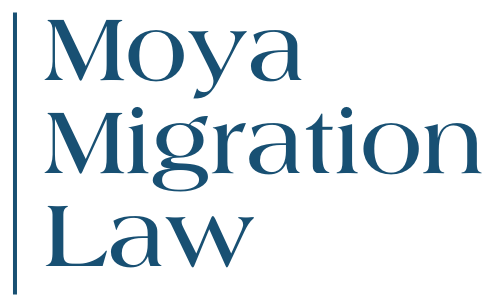Introduction
Receiving a visa refusal or cancellation from the Department of Home Affairs can be a significantly stressful experience. Fortunately, the Administrative Review Tribunal (ART), which replaced the Administrative Appeals Tribunal (AAT) on October 14, 2024, offers an independent merits review of many visa decisions, providing a valuable opportunity to have your case reconsidered.
However, the ART appeal process is often intricate and demanding, involving complex legal frameworks and strict time limits for lodging an appeal application. This guide details how securing effective legal representation is crucial for navigating these complexities, presenting a strong case, and ultimately maximising your prospects of achieving a favourable visa decision.
Why is Effective Representation Crucial for Your Visa Appeal at the ART?
You Navigate Complex Legal & Procedural Frameworks With an Experienced
Successfully appealing a visa decision at the ART often requires an in-depth understanding of intricate legal and procedural landscapes. Immigration law, in particular, is frequently described as being saturated with technicalities that can be exceptionally challenging for individuals to navigate without experienced assistance.
A skilled legal representative, such as an immigration lawyer or a registered migration agent (RMA), brings several advantages to your case:
- Possesses a trained understanding of the relevant legal requirements
- Ensures your appeal or AAT application is correctly prepared and lodged
- Provides comprehensive knowledge of applicable laws, regulations, policies, and relevant case law
The ART has specific rules and limitations regarding what can be considered during the review process. Effective legal representation ensures that your submissions and supporting evidence are meticulously focused on the criteria pertinent to your type of decision, thereby adhering to the ART’s procedural framework.
You Craft Persuasive Legal Arguments Over Emotional Responses
When facing a visa refusal or cancellation, it is natural for applicants to experience strong emotions. However, relying solely on emotional responses when presenting your case to the ART is unlikely to yield a positive result.
Effective legal representation plays a critical role in transforming an emotionally driven appeal into one grounded in sound legal arguments. Representatives ensure that your submissions and supporting documents are focused on the specific legal criteria the ART is permitted to consider for your visa decision.
An RMA or an immigration lawyer can prepare strong written submissions that clearly and persuasively present your arguments. This involves:
- Carefully addressing all the reasons for the original visa refusal or cancellation
- Incorporating relevant case law and legislative provisions to support your claims
- Providing robust documentary evidence that substantiates your arguments
- Presenting your case in a clear, logical, and compelling manner, tailored to the requirements of the AAT process
By focusing on legally relevant points and constructing a well-reasoned case, your representative can significantly enhance the persuasiveness of your appeal application, moving beyond emotional factors that may not be central to the legal considerations of your visa matter.
You Identify & Address Errors in the Initial Visa Decision
A crucial aspect of effective representation in a visa appeal is the ability to meticulously identify and address any errors made in the initial decision by the Department of Home Affairs. An experienced representative is adept at scrutinising the original decision record and the reasons provided for the visa refusal or cancellation.
This thorough review can uncover potential errors of law, incorrect application of policy, or misunderstandings of fact that may have led to the adverse outcome.
Once such errors are identified, your representative can strategically challenge them as part of your appeal application to the ART. This process includes:
- Ensuring that every ground for the original refusal mentioned in the decision notice is sufficiently addressed in your appeal
- Highlighting any instances where the Department may have misapplied migration law or policy
- Presenting arguments and evidence to counter flawed reasoning in the initial visa decision
Addressing these errors comprehensively strengthens your appeal application and provides the ART with a clear basis for reconsidering your case.
Request Your Free 15-Min Consultation
What Is Your Role in Partnering With Your Representative to Secure a Successful Visa Appeal?
Provide Complete & Honest Information
Your active participation is vital when working with your legal representative for a visa appeal at the ART. A key responsibility is to provide complete and entirely honest information regarding your case. Your representative relies on you for all factual details and relevant documentation to build a strong appeal application.
It is essential to disclose all information, even if you believe some details might be unfavourable. Withholding information or providing misleading accounts can severely damage the credibility of your visa appeal and negatively impact the decision made. Your representative needs the full picture to develop the most effective strategy for your circumstances.
To assist your representative and ensure a smooth AAT appeal process, consider the following:
- Gather all documents: Collect everything related to your original visa application, the refusal, or cancellation decision record from the Department of Home Affairs, and any other supporting evidence.
- Organise your information: Present your documents and information chronologically and clearly. This helps your representative understand your case efficiently and identify the key issues for the appeal application.
- Be prompt: Provide all requested documents and information to your representative as soon as possible. This allows them sufficient time to review materials, conduct necessary research, and prepare thorough submissions within any strict time limit.
Maintain Effective Communication & Understanding of the Legal Strategy
Effective collaboration with your representative for your ART visa appeal also hinges on maintaining clear and consistent communication. You should feel comfortable asking questions to ensure you understand the legal strategy developed for your appeal application and the various steps involved in the ART process.
Understanding the legal strategy allows you to contribute more meaningfully to your case. Your insights into your circumstances can be invaluable in refining the approach your representative takes.
This collaborative process involves:
- Regular updates: Your representative should keep you informed about the progress of your visa appeal. Equally, you should promptly inform them of any changes in your circumstances that might be relevant to your case.
- Responsiveness: Reply to your representative’s communications, such as emails and phone calls, in a timely manner. This ensures that the preparation of your appeal application can proceed without unnecessary delays.
- Clarification: If you are unsure about any aspect of the legal strategy, the evidence required, or the ART appeal process itself, do not hesitate to ask your representative for clarification. A good representative will explain complex matters comprehensively.
Open communication fosters a strong partnership with your representative, ensuring that you are both working towards the same goal with a shared understanding. This collaborative approach is crucial for navigating the complexities of the ART and striving for a favourable decision.
Request Your Free 15-Min Consultation
How Do You Navigate the ART Hearing Process With Your Representative?
Prepare Effectively with Your Representative for the ART Hearing
Thorough preparation is essential for your ART hearing, and your representative plays a pivotal role in this stage of the appeal application. They will work closely with you to ensure you are well-prepared and understand what to expect during the ART process.
Your representative will undertake several key actions to prepare you for the visa appeal hearing:
- Explain the Hearing Process: They will demystify the ART hearing, explaining its informal nature compared to a court, the role of the Tribunal Member, and how proceedings typically unfold. This helps reduce anxiety and ensures you are familiar with the environment.
- Review Your Case and Evidence: Your representative will meticulously review all aspects of your case, including your statement, supporting evidence, and the Department of Home Affairs’ reasons for the original decision. They ensure you are well-versed in the facts and how they relate to the relevant legislative criteria for your visa.
- Anticipate Questions and Mock Hearings: Drawing on their experience, representatives anticipate the types of questions the Tribunal Member is likely to ask. They may conduct mock hearings or practice sessions to help you articulate your answers clearly, consistently, and confidently, ensuring you give evidence that aligns with your responses.
- Prepare Witnesses Before Giving Testimony: If your visa appeal involves witnesses, your representative will guide them on how to prepare their testimony. This includes advising them to be concise, factual, and relevant to the specific points they are supporting in your appeal application.
- Offer Strategic Guidance: Your representative will discuss the overall strategy for the hearing, including how your evidence will be presented and which arguments will be emphasised. They ensure you understand your role in presenting your case effectively to the Tribunal Member.
- Manage Prehearing Formalities: They will handle responses to any prehearing information requests or hearing invitation letters from the ART, ensuring all procedural requirements are met in a timely manner. This includes confirming attendance and notifying the ART if an interpreter is required, which the ART can organise.
Rely on Your Representative to Advocate for You During the ART Hearing
During the ART hearing for your visa appeal, your representative is there to provide crucial support and ensure your case is presented effectively. While you will likely need to answer questions directly from the Tribunal Member, your representative actively manages the presentation of your appeal application.
The key functions of your representative during the ART hearing include:
- Providing Support and Reassurance: The hearing can be an intimidating experience. Your representative will be by your side to offer reassurance, helping you to remain calm and focused when providing evidence or responding to questions.
- Making Submissions: Although the ART hearing is less formal than a court, your representative may make oral submissions to the Tribunal Member if requested or permitted. These submissions will highlight the key strengths of your visa appeal, address legal points, and argue why the original decision by the Department of Home Affairs should be overturned.
- Guiding Your Testimony: While you answer questions from the Tribunal Member, your representative can assist if you are unsure about a question, asking for clarification on your behalf if needed. They ensure your testimony is presented clearly and effectively supports your appeal application.
- Clarifying Complex Issues: If complex legal or factual matters arise during the hearing, your representative can help clarify these for both you and the Tribunal Member, ensuring there are no misunderstandings.
- Responding to Tribunal Member Concerns: Your representative will listen carefully to the Tribunal Member’s questions and comments, identifying any concerns they may have. They will then work to address these concerns effectively, either through your evidence or their submissions, to strengthen your visa appeal.
- Ensuring Procedural Fairness: Your representative will ensure that the hearing is conducted fairly and that you have a proper opportunity to present your case and provide evidence. They will be attentive to the ART process and ensure your rights are upheld.
Request Your Free 15-Min Consultation
How Can You Further Raise Your Chances of Winning Your ART Visa Appeal?
Engage Early and Prepare Thoroughly
Engaging legal representation as early as possible in your ART visa appeal process can significantly enhance your prospects of a favourable outcome. Timely engagement offers several key advantages:
- It allows your representative to assess your visa refusal or cancellation thoroughly
- It provides time to develop a comprehensive case strategy
- It ensures your appeal application is lodged correctly and within strict time limits
- It creates sufficient opportunity to explore all available options and gather necessary supporting evidence
Thorough preparation is the cornerstone of a strong appeal application. This involves several critical steps that a representative can guide you through:
- Detailed Review of the Original Decision: Meticulously examining the Department of Home Affairs’ decision record to understand every reason for the visa refusal or cancellation. This helps identify any potential errors of law or fact.
- Strategic Evidence Collection: Gathering all relevant documents, which may include updated personal information, financial records, witness statements, or experienced reports. Your representative will ensure this evidence directly addresses the refusal grounds and strengthens your visa appeal.
- Crafting Persuasive Submissions: Developing clear and compelling written arguments that outline why the original decision was incorrect and why your visa should be granted. These submissions will reference relevant legislation, policy, and case law.
- Understanding Procedural Requirements: Ensuring all aspects of your appeal application comply with the ART’s specific rules and Practice Directions, preventing avoidable delays or complications.
A well-prepared appeal application, developed with early legal representation, ensures your case is presented in the strongest possible light to the ART. This proactive approach is vital for navigating the complexities of the ART process and maximising your chances of success.
Adhere to All Time Limits & Procedural Requirements
Successfully navigating the ART process for your visa appeal hinges critically on strict adherence to all prescribed time limits and procedural requirements. Missing a deadline for lodging your appeal application or submitting required documents can have severe consequences, often resulting in the loss of your opportunity to review the visa decision.
The time limits for appealing can vary depending on the type of visa and the specifics of your situation, and the ART generally has no discretion to extend these deadlines.
Understanding and complying with the ART’s procedural framework is as important as the merits of your case itself. This includes:
- Meeting Lodgement Deadlines: You want to submit your application within the time limit the ART specifies. This is often a very strict period, sometimes as short as seven working days or up to 70 calendar days from when you are taken to have received the decision from the Department of Home Affairs.
- Correct Application Forms and Fees: Using the correct ART application forms and paying the required application fee on time. Errors in the application or failure to pay the fee can lead to your application being deemed invalid.
- Following ART Practice Directions: The ART issues Practice Directions that outline mandatory procedures for how reviews are conducted, how documents must be submitted, and communication protocols. Non-compliance can adversely affect your appeal.
- Timely Submission of Evidence: Providing all supporting evidence and written submissions by the deadlines set by the ART. The Tribunal Member may not consider late evidence.
- Responding to Tribunal Requests: Promptly responding to any requests for further information or directions issued by the ART throughout the review process.
Request Your Free 15-Min Consultation
Conclusion
Securing effective legal representation is paramount when appealing a visa refusal or cancellation to the ART, as it significantly enhances your ability to navigate complex legal frameworks, present persuasive arguments, and address errors in the initial decision. Partnering with an experienced representative ensures thorough preparation, adherence to strict time limits, and skilled advocacy throughout the ART process, ultimately maximising your prospects of a favourable visa outcome.
If you are facing a visa refusal or cancellation and need to appeal to the ART, contact Moya Migration Law today for trusted experiencedise and specialised services tailored to your visa appeal. Our experienced team in Adelaide is ready to provide comprehensive migration advice and robust representation to help you achieve the best possible result in your ART appeal application.









